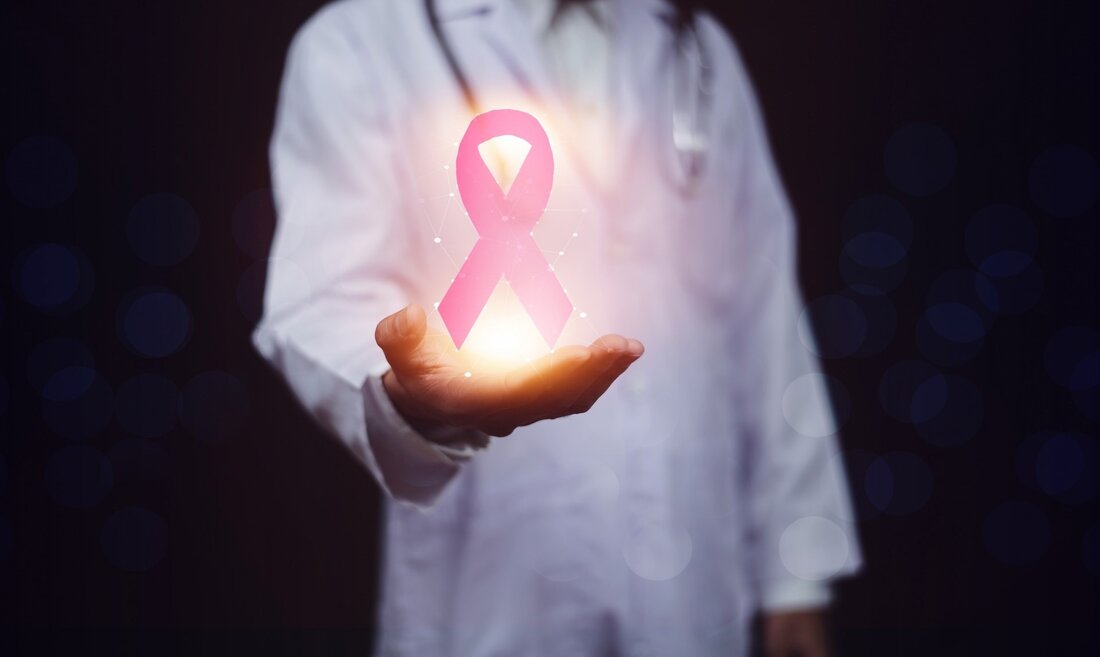Experts at Cedars Sinai remind men of their risk of breast cancer
Although breast cancer is more common in women, during October, Breast Cancer Awareness Month, experts at Cedars-Sinai Cancer are reminding men that they, too, are at risk. According to the Centers for Disease Control and Prevention, one in 100 men with breast cancer are diagnosed in the United States. Cedars-Sinai cancer experts warn that one in 100 breast cancers in the United States is diagnosed in a man. Image source: Getty. Genetic predisposition is an important part of cancer risk and an important area of cancer treatment. Some people have damage to their DNA - their inherited genetic material - that increases their risk of developing cancer. Since the…

Experts at Cedars Sinai remind men of their risk of breast cancer
Although breast cancer is more common in women, during October, Breast Cancer Awareness Month, experts at Cedars-Sinai Cancer are reminding men that they, too, are at risk. According to the Centers for Disease Control and Prevention, one in 100 men with breast cancer are diagnosed in the United States.

Cedars-Sinai-Krebsexperten warnen davor, dass jeder 100. Brustkrebs in den USA bei einem Mann diagnostiziert wird. Bildquelle: Getty.
Genetic predisposition is an important part of cancer risk and an important area of cancer treatment.
Some people have damage to their DNA - their inherited genetic material - that increases their risk of developing cancer. As genetic sequencing of cancer patients becomes more common, we are discovering more and more patients with this inherited genetic disorder. That’s why our genetic counselors are an important part of the Cedars-Sinai cancer team.”
Dan Theodorescu, MD, PhD, Director, Cedars-Sinai Cancer and PHASE ONE Distinguished Chair.
Both men and women should be aware of their family history of breast cancer, said John Lee, associate director of the Genetic Counseling Program at Cedars-Sinai Cancer. And check both sides of the family, Lee said, because mutations in the BRCA1 and BRCA2 genes that increase breast cancer risk can be inherited from the mother or father — or both.
Lee recently sat down with the Cedars-Sinai Newsroom to provide additional breast cancer awareness tips for men in hopes of diagnosing more of these cancers in their early stages, when they are most treatable.
Newsroom: What factors increase a man's risk of developing breast cancer?
Lee:The first is the family history on both sides. There is a misconception that breast cancer cannot be inherited from the father's side. That is absolutely not true. You inherit half of your genes from your mother, half of your genes from your father, and when it comes to cancer-related genes, they're actually pretty much the same.
Other risk factors include age - as most breast cancers in men are diagnosed in those over 60 - as well as obesity and certain medical conditions. These include liver disease and testicular disease.
Newsroom: When should men consider undergoing genetic testing?
Lee:Any man with a personal or family history of male breast cancer, regardless of age of diagnosis, should consider genetic testing. Additional clinical indications include personal history of metastatic prostate cancer or high or very high risk prostate cancer. Men should also consider genetic testing if they have a history of female breast cancer in their family, multiple family members have had female breast cancer, or if they have Ashkenazi Jewish ancestry.
Newsroom: Why do you think many of these men don't come for genetic testing?
Lee:First, they are not always referred for testing because many healthcare providers hold the outdated view that a family history of breast cancer is only a concern for women. Second, most people think that genes like BRCA1 and BRCA2 only affect female risk. The risk of cancer for BRCA-positive women is much higher than the risk for BRCA-positive men, but the risk still exists. There is also a stigma when it comes to testing men. Even when providers refer high-risk male patients, many of these patients never make an appointment, and of those who do come for a consultation, some choose to forego testing.
Newsroom: How does being BRCA1 or BRCA2 positive affect a man's risk of developing breast cancer?
Lee:Being BRCA2 positive increases a man's risk of developing breast cancer from 0.1% to about 7%. When you look at the absolute numbers, I can understand why some people are opposed to this because it is not nearly as great as the risk for women, which goes from 13% in the general population to up to 70% for BRCA. positive women. But a BRCA-positive man also increases the risk of developing prostate and pancreatic cancer. Another factor is that BRCA-positive men can pass this gene on to their children. And I think it's important for them to know that too.
Newsroom: What are the breast cancer screening recommendations for BRCA-positive men?
Lee:We recommend annual clinical breast exams starting at age 35. We also recommend testing for gynecomastia, which often means a man has enough breast tissue to undergo routine mammograms. We recommend general breast self-awareness for both men and women - becoming familiar with your breasts and looking for signs such as a lump or any type of nipple discharge.
Source:
.

 Suche
Suche
 Mein Konto
Mein Konto
